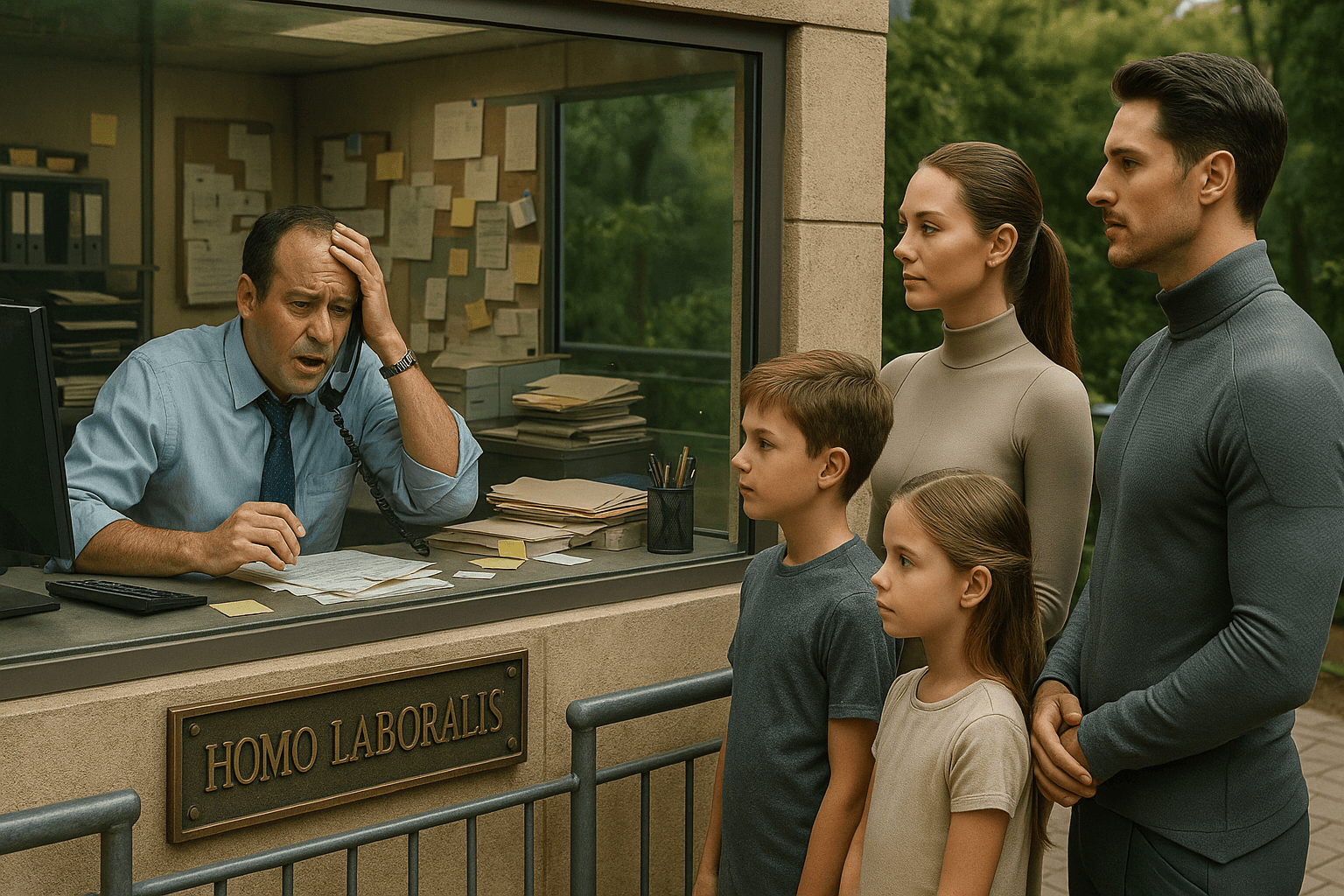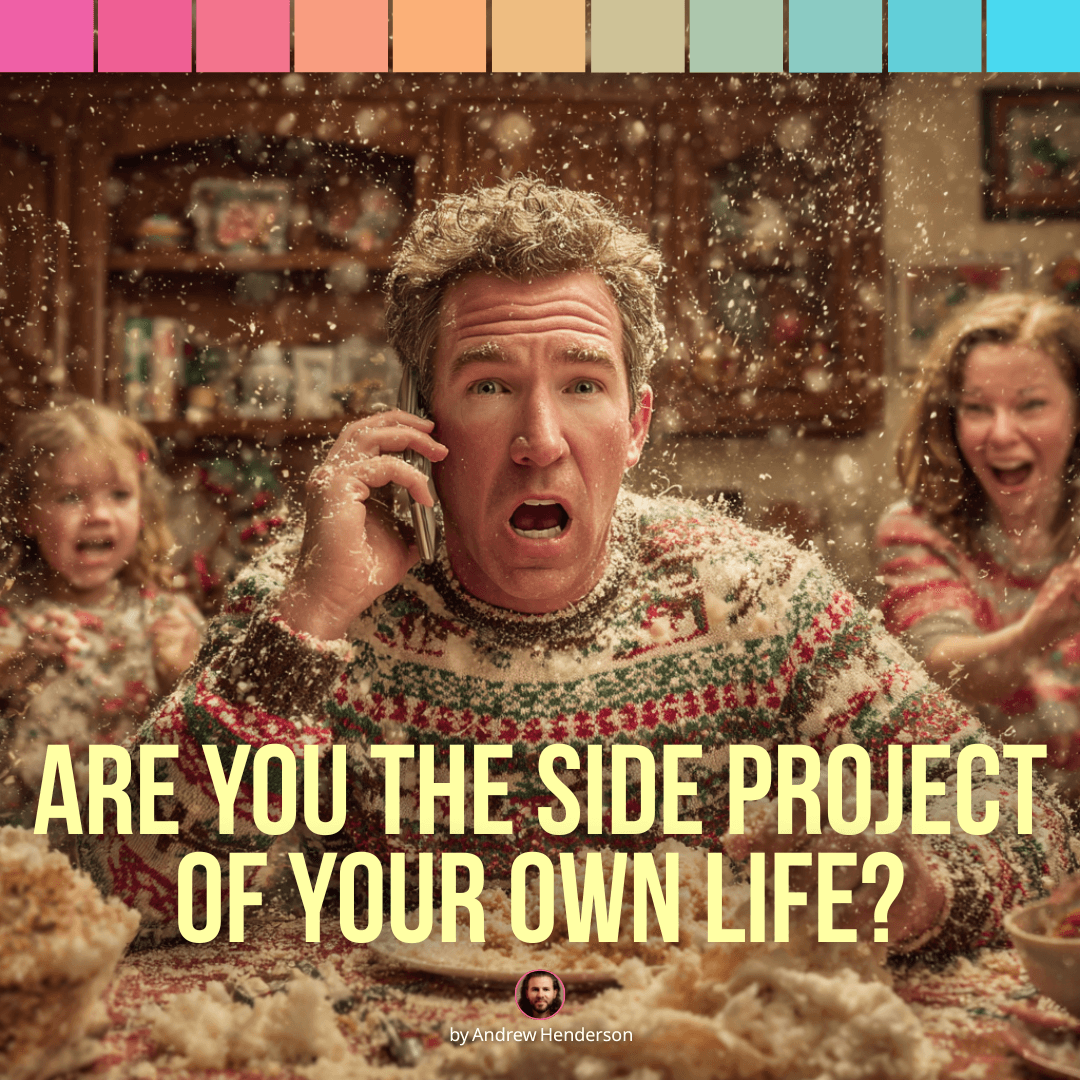
Every morning, I perform a ritual that perfectly captures how we came to enslave ourselves.
What started as cooking myself a healthy breakfast has evolved into an hour-long production: chopping chives, crisping bacon, slow-cooking eggs to achieve the ideal texture, crafting an iced sea salt maple latte that would make your favorite barista weep. I've fine-tuned every detail to perfection, and now I'm trapped by my own standards.
This is exactly how we built the very system that now dominates our lives.
We Blame "The System"
A lot of people blame "the system" for society's struggles and their own frustrations. I've done it myself.
We point fingers at corporations, governments, the wealthy elite — anyone but ourselves. The uncomfortable truth is this: we are the system. We are all the unspoken, interconnected collaboration that billions of human beings commit to daily.
Unfortunately, this means most of us spend our days doing work we dislike simply to survive within that system.
We've become a global tribe where money signifies contribution, and those without it get pushed to the fringes — essentially left to die from modern-day exposure, a.k.a. homelessness.
Most of us live in terror of this fate.
We slave our entire lives to demonstrate we're worthy of existing, that we deserve a place in this world. But the cruel irony is that even those who "succeed" and accumulate wealth rarely escape the fear. The scarcity mindset follows them up the ladder. They hoard more and more, desperate to create enough distance between themselves and someone whose worth is in question: the poor, the vulnerable, the disposable.
When this fear kicks in, we act strangely. We call this behavior greed, immorality, evil. We invent entire religions to explain why we betray our deepest knowing — that we are interconnected.
The Garden We Left Behind
Along the way, we forgot something: we don't actually need most of the machinery that runs our modern world. Our ancestors found shelter from the elements and gathered food from the earth. Beyond that, they needed little else. It's why a full stomach and sunshine on your face can still make everything feel right with the world. The Bible refers to this as the Garden of Eden — but it's not a place, it's our natural state of contentment.
So how did we end up here? How did we chain ourselves to desks under fluorescent lights, working sixty-hour weeks to afford the elements of a "successful life"?
The Innocent Beginning
It started innocently enough. Problem-solving is in our nature. We want to feel useful, to improve the world around us. The process is always the same:
- "I like this."
- "I don't like this."
- "How can I get more of what I like and less of what I don't like?"
We applied this thinking to everything. We wanted to travel farther, faster — so we built airplanes. Now we expect to cross continents in hours, and maintaining that expectation requires hundreds of thousands of people in an intricate chain: factory workers making tires, mechanics maintaining engines, air traffic controllers managing the skies, pilots navigating the clouds.
Each innovation solved a problem and created ten new ones. Each comfort became a necessity. Each convenience required an entire ecosystem of human effort to maintain.
The Ratchet Effect
Like my breakfast routine, we slowly moved our baseline without noticing. What began as improvements became requirements. What started as luxuries transformed into the bare minimum of acceptable living.
Consider the trajectory: Our great-grandparents were amazed by radio. Our grandparents marveled at television. Our parents celebrated the first computers. We grew up with the internet. Our children expect instant access to all human knowledge in their pocket — and complain when it takes more than three seconds to load.
Each generation inherits the complexity of the last and adds their own layer. We've created a world where opting out feels impossible because the infrastructure of basic survival now requires participation in systems of staggering complexity.
The Fear Economy
What keeps this machine running isn't just habit or convenience — it's fear. We've built an economy that runs on scarcity anxiety, where your worth is measured by your productivity, and your security depends on your ability to contribute.
This fear manifests differently at every economic level. The poor fear homelessness and hunger. The middle class fears falling behind, losing status, being unable to provide for their children. The wealthy fear losing their wealth, being exposed as frauds, or — perhaps most terrifying—being forced back down to earth with the rest of us.
The system feeds on this fear at every level. It's why billionaires work eighty-hour weeks to accumulate their tenth billion. It's why middle managers sacrifice their health for promotions they don't want. It's why minimum-wage workers take second jobs instead of demanding better conditions.
We've convinced ourselves that the alternative to this fear-based productivity is chaos, poverty, the collapse of civilization itself. But what if that's not true? What if that keeps us from rediscovering our true nature?
The Master-Servant Dance
Perhaps the strangest aspect of our system is how we all take turns playing master and servant. At work, we follow orders, scramble to meet deadlines, and do whatever it takes to please our bosses. But the moment we become customers, we transform into masters, expecting instant service, perfect products, and absolute convenience.
Most of us participate in this dance, secretly hoping that someday we'll accumulate enough wealth to play only the master role — to extract ourselves from the matrix and enjoy the benefits of a global workforce without giving much effort in return.
But here's the cosmic joke: even at the top of the pyramid, you're still serving the system. The billionaire CEO is as trapped as anyone, perhaps more so. They can't stop, can't slow down, can't question the game because they've internalized their role as the engine that keeps everything running.
The Stories That Bind Us
We maintain this prison through the stories we tell ourselves. Our culture is saturated with myths of hard work and struggle, of grinding your way to success, of earning your place through suffering. We've made struggle sacred, to the point where we unconsciously seek out or create difficulty in our lives to give them meaning.
We're told to be grateful for our technological abundance, warned that questioning the system makes us lazy or ungrateful. The narrative is simple: contribute to the machine or be branded a loser, a drain on society, someone who doesn't deserve the bounty of modern life.
I'm beginning to suspect these stories are just the myths that keep us from demanding more.
The Awakening
Something is shifting. You can feel it in the growing interest in minimalism, in digital detoxes, in the micro-retirement and quiet quit movements, in the increasing number of people choosing experiences over possessions. We're beginning to question whether the juice is worth the squeeze.
People are stepping back and asking:
- Do I need to upgrade my car every few years?
- Do I really need a job that requires me to check email at midnight?
- Do I need to live in a house so expensive that both parents work sixty-hour weeks just to afford the mortgage?
The answer, for a growing number of people, is no.
The Choice is Ours
We stand at a crossroads. We can continue participating unconsciously in the system we've created, allowing fear and habit to drive us deeper into complexity and servitude. Or we can wake up to our role as both creator and victim, recognizing that we have the power to change the system we're all a part of.
This doesn't mean abandoning all technology or returning to a primitive existence. It means becoming conscious participants rather than unconscious slaves. It means distinguishing between tools that serve us and systems that enslave us. It means choosing simplicity not out of deprivation, but out of wisdom.
The system isn't some external force imposed upon us — it's the collective result of billions of individual choices made day after day, year after year. And if we built it, we can change it.
The question is: are we brave enough to start?
Because every morning when I look at my elaborate breakfast ritual, I'm reminded that the most radical act might be the simplest one: to stop participating in the insanity we created, one small decision at a time.
And that's the most liberating truth of all.


